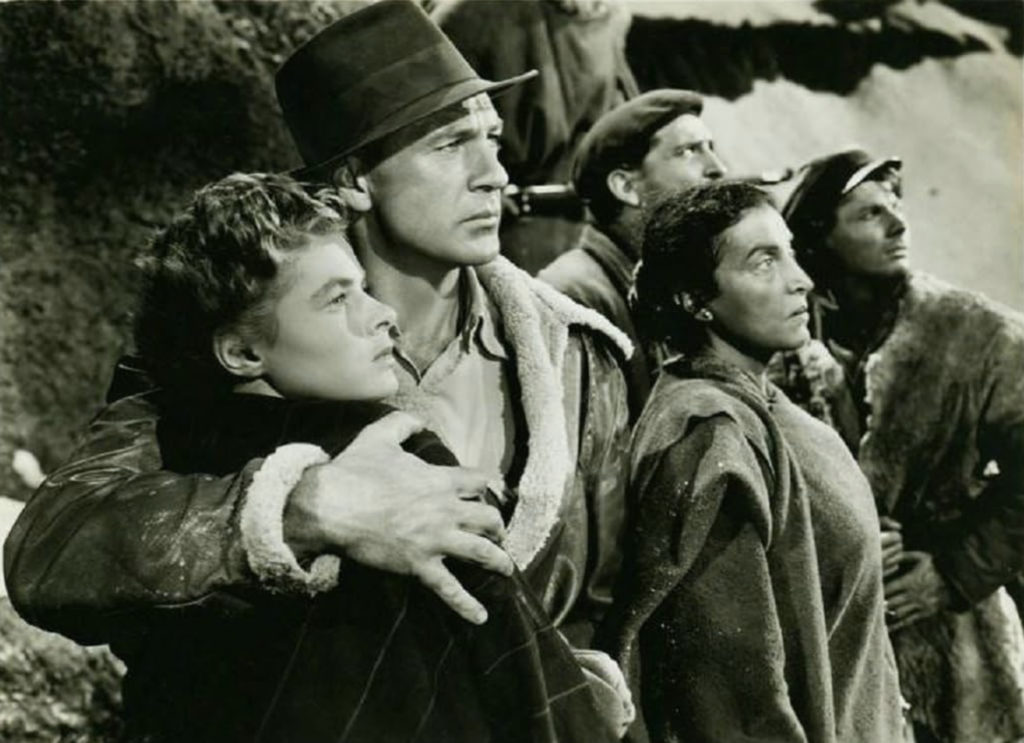Movies can be a combination of archaeology and anthropology. They tell us what a culture at a particular point in time valued and what it did not. Once a film is in the “can” and off to the theaters — or now, to the streaming platform of your choice — what it wanted to say about life, love, good, and evil is forever locked in time, like a prehistoric mosquito trapped in amber.
Movies and television are rarely reliable history. With completely fictional characters and plot lines often come with the present-day cultural preferences and prejudices of the artists making the films. Films based on historical people and events are not immune from this same phenomena either.
That is not to say that literary license does not have a place in creating entertainment, even when the subject matter deals with real people and real events. Ridley Scott’s epic film “Napoleon” has ruffled some historians’ feathers for taking liberties with the historical record. The filmmaker placed Bonaparte on the streets of Paris so he could witness the execution of Marie Antoinette. Maybe not good history, but probably good art.
Sometimes, though, filmmakers go too far and literary license turns into cultural propaganda. In the 1967 film “Bonnie and Clyde,” which is still considered a watershed moment in film history, two cold-blooded killers from the 1930s were transformed into free spirit tragic hero prototypes of the time’s cultural upheaval.
Christopher Nolan’s film “Oppenheimer” should win some Oscars. It is an excellent film but sadly contains gratuitous nudity, which renders it not friendly for family viewing. The unnecessary and crude exploitive nature of that aside, the film is fairly good history … until it is not.
The real Dr. Oppenheimer, the man responsible for shepherding the Manhattan Project and the creation of the atomic bomb, was by all historical research, a complex and contradictory soul. He was a serious man of science, but he was also a self-promoter. But in a movie like this, every character, whether the general in charge of the Manhattan Project or the legion of noted scientists who brought the project to fruition, can certainly blur the lines between fact and artifice.
In general, the film’s historical accuracy seems pretty tight, and the known fact that Oppenheimer flirted with Communism and other socialist celebs of the time is the hub upon which the film is centered. It is also the focal point where the truth gets blurry, especially as it pertains to how the Spanish Civil War is framed. The film obviously believes support of the so-called republican forces in that conflict was the right side of history. Those in the film who do not think so are portrayed as either too conservative or, worse, reactionary.
Hollywood has had a long infatuation with the Spanish Civil War. As far back as the classic film “Casablanca,” a film the Vatican holds rightly in high esteem, that terrible conflict from the 1930s has been used as a kind of litmus test. Before Humphrey Bogart’s Rick winds up in a “joint” in French Morocco, his bona fides for being one of the good guys is established by his involvement in that conflict on the side that lost.
Support for the Communist side was even more overt in examples like the film adaptation of Hemmingway’s “For Whom the Bell Tolls.”
A historian once quipped that the Spanish Civil War was the only war where the losers got to write the history and Hollywood’s long-standing romanticizing of that war is proof to that hypothesis. It is also a good reminder that the “winners” write most of the history and control narratives. That is why the Spanish were always the “bad” guys with sinister inquisitors lurking around them in swashbuckling movies of that golden era, while English pirates were seen as patriots and heroic bastions of freedom and justice.
Whenever we watch films with or without historical premises, we should always see them first as entertainment and never take what is being presented as a demonstrable fact. History is never, ever that simple or exact. This is especially true when a film has anything to do with the Church and its history where misrepresentations, half-truths, and objective lies warrant their own category at the Academy Awards.
It might be best to watch any film that presents something as the “truth” with generous heaps of skepticism. When in doubt, I would suggest taking the advice of a real-life person who used to star in motion pictures during the industry’s golden age and who went on to more than a modicum of success in the world of politics: “Trust but verify.”




